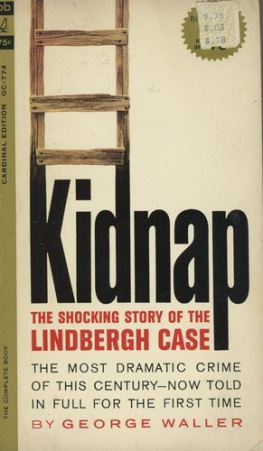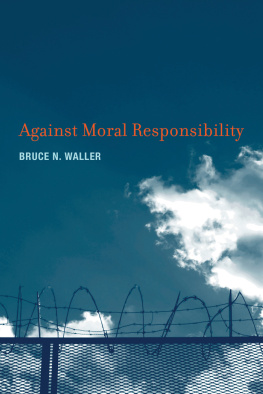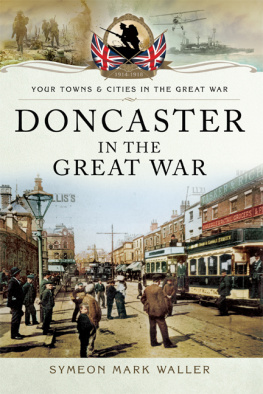Waller - A Question of Loyalty
Here you can read online Waller - A Question of Loyalty full text of the book (entire story) in english for free. Download pdf and epub, get meaning, cover and reviews about this ebook. year: 2014;2007, publisher: HarperCollins e-Books, genre: Detective and thriller. Description of the work, (preface) as well as reviews are available. Best literature library LitArk.com created for fans of good reading and offers a wide selection of genres:
Romance novel
Science fiction
Adventure
Detective
Science
History
Home and family
Prose
Art
Politics
Computer
Non-fiction
Religion
Business
Children
Humor
Choose a favorite category and find really read worthwhile books. Enjoy immersion in the world of imagination, feel the emotions of the characters or learn something new for yourself, make an fascinating discovery.

- Book:A Question of Loyalty
- Author:
- Publisher:HarperCollins e-Books
- Genre:
- Year:2014;2007
- Rating:4 / 5
- Favourites:Add to favourites
- Your mark:
- 80
- 1
- 2
- 3
- 4
- 5
A Question of Loyalty: summary, description and annotation
We offer to read an annotation, description, summary or preface (depends on what the author of the book "A Question of Loyalty" wrote himself). If you haven't found the necessary information about the book — write in the comments, we will try to find it.
Waller: author's other books
Who wrote A Question of Loyalty? Find out the surname, the name of the author of the book and a list of all author's works by series.
A Question of Loyalty — read online for free the complete book (whole text) full work
Below is the text of the book, divided by pages. System saving the place of the last page read, allows you to conveniently read the book "A Question of Loyalty" online for free, without having to search again every time where you left off. Put a bookmark, and you can go to the page where you finished reading at any time.
Font size:
Interval:
Bookmark:

To Matt, Susan, and Matthew
MONDAY, AUGUST 31, 1925
It was evening when Billy Mitchell finally sat down in the parlor of his quarters at Fort Sam Houston to write to Betty (as his wife, Elizabeth, was known) about the plane accident. Shade from leafy trees, some ripe with figs and pecans in the front yard, surrounded the home and cooled the dry air in the evening. But summer at the army post, just outside San Antonio, Texas, was still unbearably hot and dusty. Mitchell was glad Betty had remained with her parents in Detroit to give birth to their first child, while he managed the moving in of their furniture and the laying of new carpets.
Quarters Number 14 was not the best on the post, certainly not as fine as the accommodations usually given to generals. But it was comfortable. The house was built according to a two-story Italianate design, with limestone from the citys rock quarries. It had three bedrooms, a parlor, dining room, and servants quarters in the back. Stables nearby housed three horses Mitchell had brought with him from Virginia: Eclipse, Boxwood, and Flood Tide. From the parlors bay window, Mitchell had a beautiful view of a vast parade ground. He had to walk just several blocks to reach his office in the posts quadrangle. His old boss in Washington, Maj. Gen. Mason Patrick, had ordered that Mitchells personal plane, the Sea Gull 3rd, be flown down to him.
Still, Fort Sam Houston, as Will Rogers saw it, was Siberia. (The two had become fast friends after Mitchell took the famous humorist up for his first plane ride four months earlier.) Mitchell had been busted from brigadier general to colonel and banished to this mosquito post in Texas, Rogers had written in one of his columns, because he had angered the brass in Washington.
But Texas was far from a backwater. Fort Sam Houston was the armys largest post in the United States. For decades it had guarded the countrys strategically important southern flank against threats percolating up from Mexico. As the new air officer of the Eighth Army Corps, Mitchell had an area of responsibility that stretched from Texas to the West Coast. Elizabeth was thankful the army hadnt sent him farther away, to Panama. And though Mitchell had been reduced in rank, the army did not consider it a demotion. Colonel was his permanent rank, the highest he ever held during his career. Brigadier general had been his temporary rank during World War I, when officers were promoted rapidly as the army expanded for combat. After the war most reverted to their permanent peacetime ranks. Colonels went back to being captains, generals sank as low as major. The only reason Mitchell had been lucky enough to keep his star after the war was that his job as assistant director of the air service allowed for that rank while he held that position. When the job ended he stopped being a general.
But Mitchell felt humiliated by the reduction in rank. Elizabeth knew his feelings had been hurt much more than he ever will say, she wrote to one of his sisters. John Weeks, Calvin Coolidges secretary of war, had refused to reappoint him as air service assistant director the previous March, which meant that he returned to the rank of colonel. Mitchell had been so publicly critical of the War Departments management of air powerand so reckless with the facts, as far as Weeks was concernedthat he had practically been insubordinate. As far as Mitchell was concerned, he should have been named director of the army air service and promoted to major general a long time ago. He refused to accept the rank of colonel now. Soldiers on post still called him general, and he never corrected them.
True, the Eighth Corps territory was vast, but its air arsenal was puny. In Washington, Mitchell had lorded over the entire air service, and his instant access to the national press and the citys powerful allowed him to push his cause for an air force independent of the army. Now he was relegated to a do-nothing job far away, the War Department hoped, from politicians and the media. In Washington, he had a platoon of air officers as loyal to him as disciples to a prophet. His staff now consisted of two clerks and a stenographer, Maydell Blackmon, whom hed brought from Washington and who spent most of her days answering the hundreds of letters that poured in each weekmost from admirers who thought hed gotten a raw deal. It amused Blackie (the nickname Mitchell had given her) that he always dictated letters while walking in wide circles in his office. The general, as Blackie always called him, had a good command of the language and always seemed to know what he wanted to say. He rarely went back and edited what he had dictated.
Mitchell had wrenched his right shoulder in the plane accident that morning. He had scratches on his hands and face, and a plaster cast was packed on his nose, which was probably broken when his head slammed into the cockpits forward crash pad. He had sent Betty a quick telegram earlier that morning hoping it would reach her in Detroit before she read about the mishap in the afternoon newspapers. In fact, reporters had already phoned her shortly after his Western Union message arrived, asking her for a comment. Thank heaven you are safe, she had wired back. Betty had given birth to their first child, Lucy, less than a month earlier. She did not need the extra worry, not with everything else going on in this turbulent year. I wanted you to know ahead of any news items appearing that nothing had happened to your old man, Mitchell now wrote in the peace and calm of his parlor.
Flying was still dangerous in the 1920s. Planes were mostly contraptions made of wood, wire, and cloth. Equipment in open-air cockpits was crude: a stick to control ailerons, a wooden or metal bar on a pivot for rudders, a magnetic compass, drift meter, airspeed meter, fuel indicator, little else. Almost half the armys peacetime deaths were due to plane accidents. Air service pilots routinely made emergency landings on deserted roads or farm fields, shooing away cattle that liked to lick the varnishlike airplane dope applied to the fabric covering the wings and fuselage to make it airtight.
Shortly after 7:30 A.M ., Mitchell had climbed into a Consolidated PT-1 biplane trainer at a nearby makeshift airfield that had once been a racetrack. Harry Short, his longtime mechanic, sat in the backseat. (Shorts wife had accompanied him to San Antonio to keep house for Mitchell.) Before takeoff the two men had both thoroughly tested the aircrafts engine, landing gear, and shock absorbers. Though a couple of valves were leaking, the engine revved up to 1,650 rpm, which made it fit for flight. When all the cockpit controls seemed to work fine, Mitchell signaled the ground crewmen to turn the aircraft around so it faced the wind. They made eleven takeoffs and landings with no trouble, dazzling officers from the posts Second Division, who had come out to watch. On the twelfth takeoff, however, the engine suddenly went dead at an altitude of almost one hundred feet. The planes right tank, they later discovered, had been empty; a faulty fuel indicator registered that it was half full.
Mitchell nosed the aircraft down to keep it from stalling, then leveled it out at fifteen feet so it wouldnt hit a clutch of laborers and mule teams just ahead. Once past them, he crash-landed at the corner of a fenced-in field. The landing gear collapsed, and the PT-1 flipped over on its nose. Upside down, Mitchell and Short quickly unbuckled their cockpit belts and crawled out. Mitchell stood up, grinning and waving to the officers running toward him. Its all in a days work, he told reporters later. The nonchalance wasnt false bravado. Mitchell had flown just about every model of aircraft in the army inventory and had walked away from several serious crack-ups. He rode Eclipse that afternoon. He may have had his faults as an officer, but as a pilot, forty-five-year-old William Mitchell was fearless.
Font size:
Interval:
Bookmark:
Similar books «A Question of Loyalty»
Look at similar books to A Question of Loyalty. We have selected literature similar in name and meaning in the hope of providing readers with more options to find new, interesting, not yet read works.
Discussion, reviews of the book A Question of Loyalty and just readers' own opinions. Leave your comments, write what you think about the work, its meaning or the main characters. Specify what exactly you liked and what you didn't like, and why you think so.















